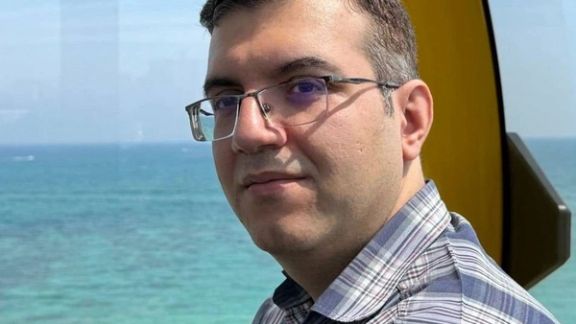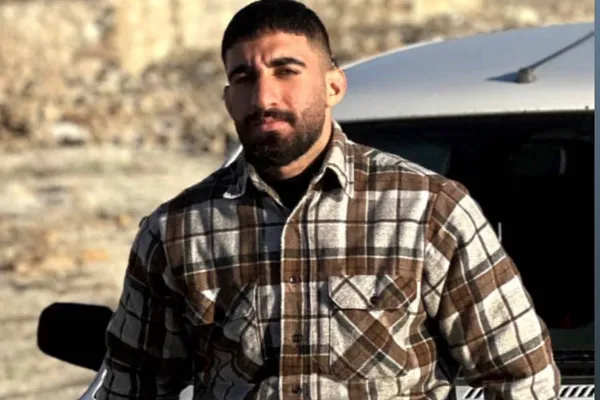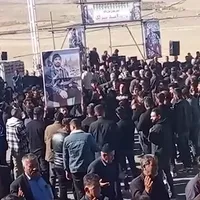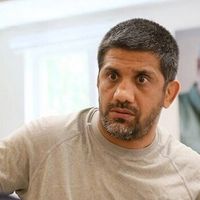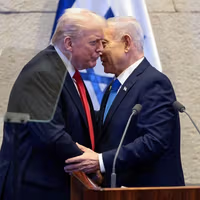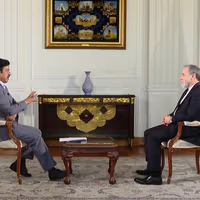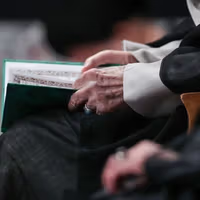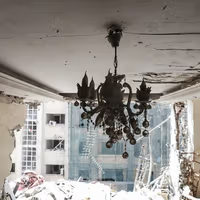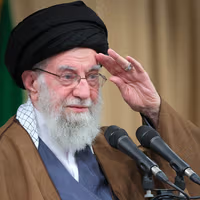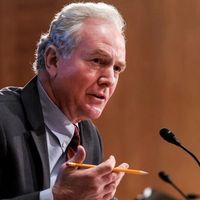Mohammad Abedini Najafabadi, who was at the center of hostage standoff between Italy and Iran earlier this year, worked in a drone research lab funded by European Union and Swiss state innovation agency, NZZ reported.
His activities helped Tehran acquire cutting-edge Western technology for its drone program, the German-language daily wrote.
US authorities issued an arrest warrant last year for Abedini over his alleged role in a drone attack that killed three US Army soldiers in Jordan last year and injured dozens.
The warrant alleged Abedini had ordered highly advanced electromechanical micro-components to Lausanne and smuggled them back to Iran in his luggage.
In 2019, Abedini began research with Swiss Professor Jan Skaloud, a specialist in satellite and inertial navigation, at the Swiss Federal Technology Institute of Lausanne (EPFL).
“Between 2017 and 2024, the defense company supported a total of nine Skaloud projects,” the NZZ said.
"The topic is autonomous drone navigation without the aid of satellites. At the heart of this project is a laboratory where a suspected Iranian spy works,” it added.
Emmanuel Barraud, an EPFL spokesperson, said the institute did not aid Tehran.
“The NZZ article doesn’t state that EPFL actively helped the Iranian regime in any way," Barraud told Iran International by email.
"Such a statement would be a gross distortion of reality. The investigation shows some connections between EPFL and one individual, M. Abedini, who may have tried to hide some of his defense-oriented activities behind the company he founded while at EPFL.”
“As far as we know, all activities performed by Abedini under his EPFL part-time contract were related to the objectives of the Lab that employed him, without any relationship to Iran. As a consequence, there is no ground for a procedure related to a violation of sanctions,” Barraud added.
Switzerland's federal defense procurement agency Armasuisse was a client of the lab, NZZ reported.
NZZ reported that Armasuisse, EPFL and Skaloud did not carry out background checks on Abedini, who leads the SDRA company, an Iranian firm producing navigation and drone systems for Iran’s Islamic Revolutionary Guard Corps, which is designated a terrorist organization by the United States.
Lea Ryf, a spokesperson for Armasuisse, told Iran International: "A security clearance or confidentiality process is not common in the field of applied research with academic institutes, as the content is usually unclassified.”
“Armasuisse does not support the Iranian regime with regard to drone technology and other technologies,” Ryf added.
Skaloud did not respond to Iran International requests for comment.
'Drones for the dictatorship'
Born in 1986, Abedini graduated from Tehran’s Sharif University of Technology, which the European Union sanctioned in 2012 for supporting Iran’s nuclear activities.
His father is Ayatollah Ahmad Abedini, a cleric who teaches in Qom.
"The coverage of Abedini has involved discussions about his role in smuggling drone technology but the research has largely been ignored,” NZZ journalist Daniel Rickenbacher told Iran International.
Skaloud and Armasuisse did not immediately respond to Iran International requests for comment.
In its article titled “Drones for the dictatorship – How Swiss research flowed into Iranian weapons technology,” NZZ wrote, “An Iranian engineer used the Federal Institute of Technology in Lausanne to procure cutting-edge Western technology for
After earning his doctorate, the NZZ reported, Abedini took a research post at EPFL in 2015.
“According to the FBI, at that time he was not only a scientist, but also held a key position in Iran's arms program,” the NZZ wrote.
The Swiss government, which represents US interests in Iran, has faced accusations of overly cordial ties with the Islamic Republic and its oil industry.
In 2012, then-US ambassador Donald Beyer criticized Switzerland for refusing to adopt sanctions targeting Iran’s Central Bank and oil trade with Europe.
Italian authorities arrested Abedini in December in response to the US warrant but released him to Iran in January, apparently in an exchange linked to Iran’s reported detention of Italian reporter Cecilia Sala.
